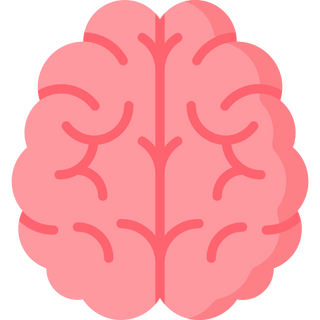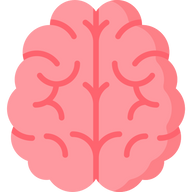
mentalagetest
The term “mental age” has often been used to explain maturity levels and approaches to topics like logic, emotion, and self-care.
The term “mental age” has often been used to explain maturity levels and approaches to topics like logic, emotion, and self-care. People who struggle with impulse control, cognition, and decision-making might have a lower mental age. A mental age test might be one way to understand your mind and how you approach certain topics. However, there can be controversy associated with this topic, so exploring the credibility of research can be helpful. If you’d like to improve the way you approach decisions and develop more maturity, working with a therapist may be helpful.
What is a mental age test?
A mental age test can be described as an online or psychiatric test that estimates one’s cognitive age based on how they act, think, or feel in relation to typical developmental milestones. For example, someone who makes careful decisions, regulates their emotions well, and can effectively communicate with others might have a higher mental age than someone who struggles to communicate clearly and cannot make healthy choices for themselves or others.
Mental age tests typically look at the following:
Intellectual development
Ability to solve logical problems
Emotional regulation
Socialization skills
Career aptitudes
Areas for growth
An example of a mental age test is the Binet-Simon Scale, which was designed to assess intelligence and cognition. The examination was based on the theories of Alfred Binet and Theodore Simon.
The Binet-Simon Scale is reported to have been the first intelligence test of its kind and led the way to more modern intelligence testing. This test generally aimed to discover which children could be operating at a lower mental age than their biological age. Modern psychologists might use this type of test to help children and adults understand their minds and work toward self-growth and self-understanding.
Where to find a mental age test or multiple-choice quiz
Psychologists and psychiatrists might use tests like the Binet-Simon Scale to support school-age children. However, there is no official mental age test. People can take tests online, but the results of these quizzes may be misleading or could be based on concepts that aren’t supported by research.
Although they can be fun and entertaining, these tests should not be considered a replacement for advice from a medical or mental health care provider.
Mental age tests might ask questions about the following:
Your thoughts on hobbies like reading, writing, and studying
How you approach problem-solving
Your memory
How you solve logic-based problems
How you respond to challenging emotional situations
Your intelligence
Your beliefs about the world and other people
The controversy behind the concept of a mental age
The concept of a mental age often comes with controversy. One of the areas in which controversy can arise is in situations where adults are treated like children due to their “mental age” as determined by a doctor or therapist. This can be an oversimplification of a person’s intelligence that might not accurately represent the way they think and function.
For example, a doctor might state that an Autistic adult woman has a mental age of nine due to a co-occurring intellectual disability and a lack of social skills. Due to this label, she might be treated like a child, and those around her might talk to her as if she is truly nine years old, not focusing on her other qualities or the areas in which she excels. This can also lead to people having lower expectations for others based on their mental ages.
Being condescending to a person due to the mental age with which they’ve been labeled can be harmful and may disregard various forms of intelligence, such as creativity, organization, and pattern recognition.
In addition, every provider is different and may have varying opinions on an individual’s mental age. A “mental age” can be seen as a concept or theory rather than a fact, and there is currently no reliable way to estimate individuals’ mental ages.
In general, people should be treated with respect no matter who they are. While accommodation can be important, treating adults like children may disregard a person’s autonomy.
How can you use online quizzes and mental age tests to learn more about yourself?
Online quizzes can offer insight into your brain and may be a fun way to test your cognitive level and learn about your personality. The answers could teach you more about your traits and mental well-being. Below are a few reasons people might take a brain age test.
Understanding your cognitive ability
According to the American Psychological Association, cognitive ability generally refers to skills associated with “perception, learning, memory, understanding, awareness, reasoning, judgment, intuition, and language.”
Individuals may exceed in some of these areas and struggle with others. An example of a cognitive ability is the capacity to learn new skills, like picking up a language or learning how to cook. Some people might be faster learners, and this aptitude might be associated with a higher mental age. Quizzes can help you identify where you excel and where you may encounter challenges.
Understanding your maturity and intelligence
In psychology, maturity can be seen as effectively and resiliently coping with various experiences in a way that is congruent with one’s age. For example, an adult might be mature if they can regulate their emotions and communicate healthily with friends and family. Mental health conditions can often impact maturity levels, potentially contributing to social and cognitive challenges. A mental age test might clarify your maturity level, but it can be important to remember that online quizzes aren’t necessarily accurate.
Learning ways to improve and grow as a person by understanding your mental age
Various types of mental health quizzes can help you learn more about areas where you experience difficulty. A mental age test might indicate that you struggle to problem-solve in certain areas of your life, or it may note that you could improve your emotional reactions to intense situations. You could use this information to enhance your self-improvement journey or discuss it with your therapist to gain additional insight.
Other ways to learn about your mental health, intelligence, and mental age through quizzes
If you’re not interested in taking a mental age screening or want to examine your mental health further, you might consider the following options.
Mental health screenings
A mental health screening like those offered by Mental Health America (MHA) can offer individuals the opportunity to determine whether they are experiencing common symptoms of various mental health conditions. These tests are not a replacement for a professional evaluation from a doctor or therapist. However, your results may indicate whether you could benefit from speaking to a professional about the symptoms you’re experiencing.
Working with a therapist
Talking to a therapist can be another way to learn about your mental health. They can assess you for symptoms of common mental health conditions and help you understand your reactions to events in your life. Anyone can go to therapy, and you don’t have to have a mental illness to do so.
Self-reflection exercises
Taking quizzes can be fun if you want to learn more about yourself. However, quizzes can’t necessarily offer definite answers to all problems. In general, you know yourself best, so self-reflection exercises may help you delve into your thoughts and ideas and learn more about what they mean to you.
A few ways to self-reflect can include journaling, creating an audio diary, talking to loved ones, practicing meditation or mindfulness, giving yourself time to think, and labeling your emotions as they arise.
Is a “mental age test” backed by research?
Mental age is a concept generally based on developmental levels that was originally intended to help children with intellectual disabilities succeed in school. However, studies have found that this theory appears to have limits. The limits of mental age testing, according to one study, include the following:
Providers may use multiple types of IQ tests to calculate mental age, and they can all reveal different results
Intelligence testing tends to be unstable in early childhood, and factors like trauma and mental health conditions can impact intelligence
Tests typically reflect social norms, which can be seen as cultural expectations and aren’t necessarily determinants of one’s development
Cognitive development may be too complex to understand or explain with a single number
Children can develop in other ways, including emotionally, spiritually, and physically, and cognitive development is not always the primary focus
